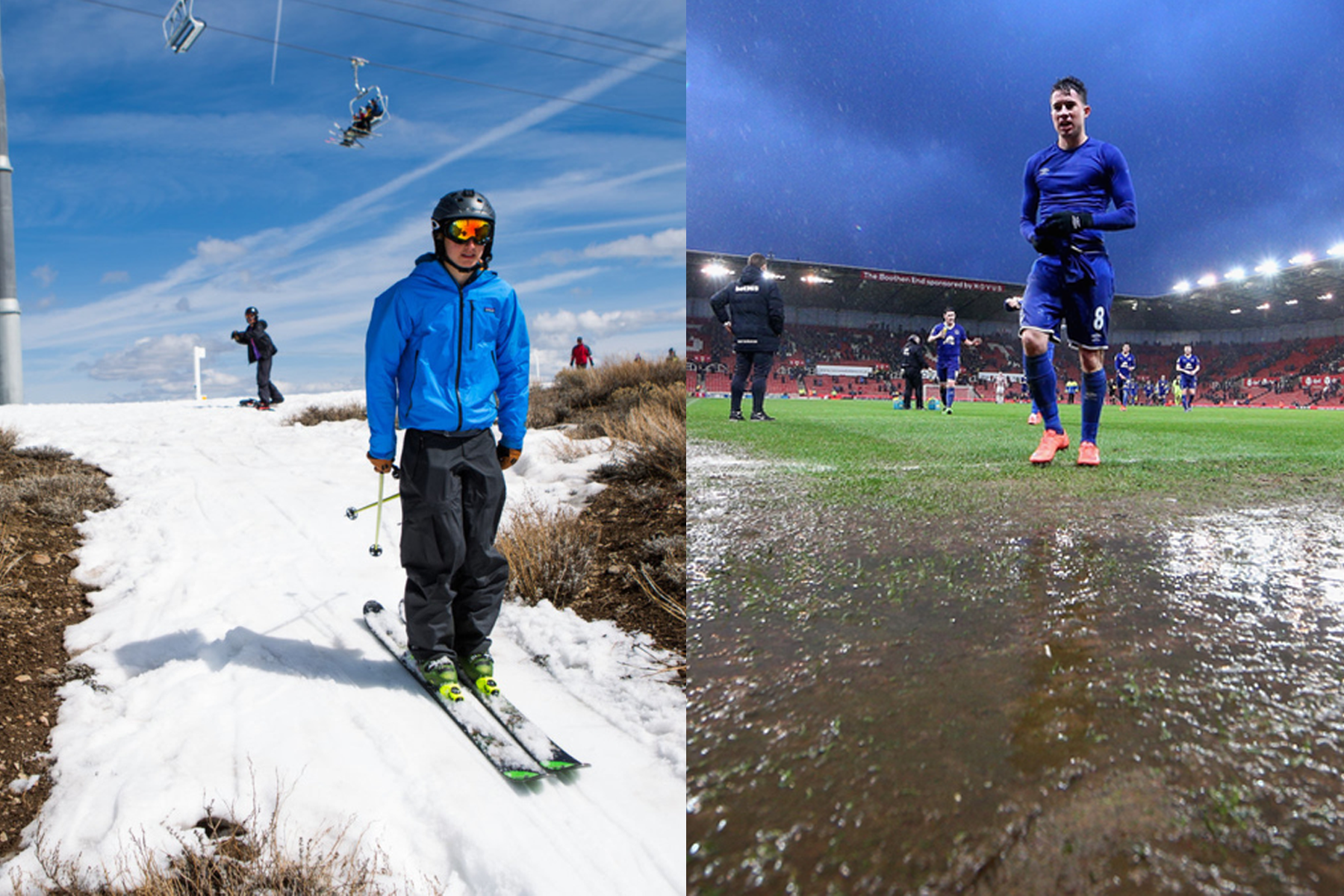As climate change intensifies with each passing year, its impacts are reaching deeper into every corner of our lives, including the world of outdoor sports. The increasing frequency of extreme weather events is beginning to reshape how and where these sports can be played.
Climate change is turning outdoor sports into unpredictable events. Ski resorts rely on costly artificial snow, surf sports face rising seas and shifting waves, marathons and races are canceled due to heat and poor air quality. As the climate shifts, athletes, fans and communities are left questioning the future of their favourite sports.
In the 2022 Beijing Winter Olympics, organizers relied almost entirely on artificial snow, which, while effective for creating conditions for competition, has a far more damaging impact on the environment than on athlete performance. The games promoted itself as the first carbon-neutral games, with eco-friendly infrastructure and green energy-powered venues, yet Brock University researchers suggest these claims fall short of genuine environmental sustainability. Professor Liette Vasseur points out that over time Beijing has lacked reliable natural snowfall, leading to the use of 49 million gallons of chemically treated water for artificial snow — an unsustainable solution in a region facing water shortages. While the games claim to be “green,” Professor Samir Trabelsi argues that this is a form of greenwashing as there are independent assessments to verify the sustainability claims.
The reliance on artificial means to sustain outdoor sports isn’t unique to Beijing; it’s a growing trend worldwide as regions grapple with climate challenges. Ski resorts worldwide are turning to artificial snow as natural snowfall becomes increasingly unpredictable. Once reliable for consistent snowfall, many regions in Europe, North America and Asia now face shorter winters and erratic snow patterns. Beyond environmental concerns, artificial snow is expensive, requiring significant investments from ski resorts for the equipment, water and electricity needed to maintain it. Smaller resorts, especially those in lower-altitude regions, often find it financially unsustainable and may be forced to close. Even for well-funded resorts, the cost of producing artificial snow is expected to rise as climate conditions worsen and water becomes scarcer, prompting questions about the long-term viability of the ski industry in its current form.
The need to adapt to changing conditions isn’t limited to winter sports — coastal sports like surfing are also facing shifts as climate change is affecting natural environments. Rising sea levels threaten to reshape coastlines, leading to erosion that can permanently alter or even eliminate popular surf spots. Beaches are now at risk as sand is washed away and shorelines retreat, disrupting wave patterns that surfers rely on for optimal conditions. Beyond rising sea levels, storm intensity has a direct impact on surfing. While strong storms can sometimes generate larger swells, they also create dangerous conditions that can make surfing hazardous and unpredictable.
The small island nation of Kiribati composed of 33 atolls and reef islands in the central Pacific is facing some of the world’s most immediate threats from rising sea levels. For surfers, Kiribati was once a destination offering consistent waves- quality surfing. However, as sea levels continue to rise, beaches that once offered accessible surf breaks have eroded, forcing the shoreline back and altering a natural wave pattern. These shifts have disrupted the wave formations, making certain spots impossible to surf.
As climate change reshapes our world, it’s clear that the impact on outdoor sports is only the beginning. The places we associate with adventure, community and culture are becoming symbols of an uncertain future. Without meaningful climate action, we risk losing not only cherished sports but also the natural beauty which they possess. Preserving these environments is essential, not just for the sports we love, but for future generations to experience the world’s landscapes in all their natural wonder. The time for change is now, and it’s up to all of us to make a difference.

